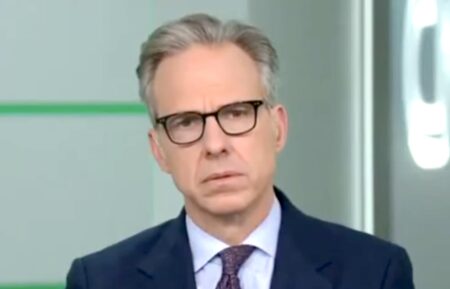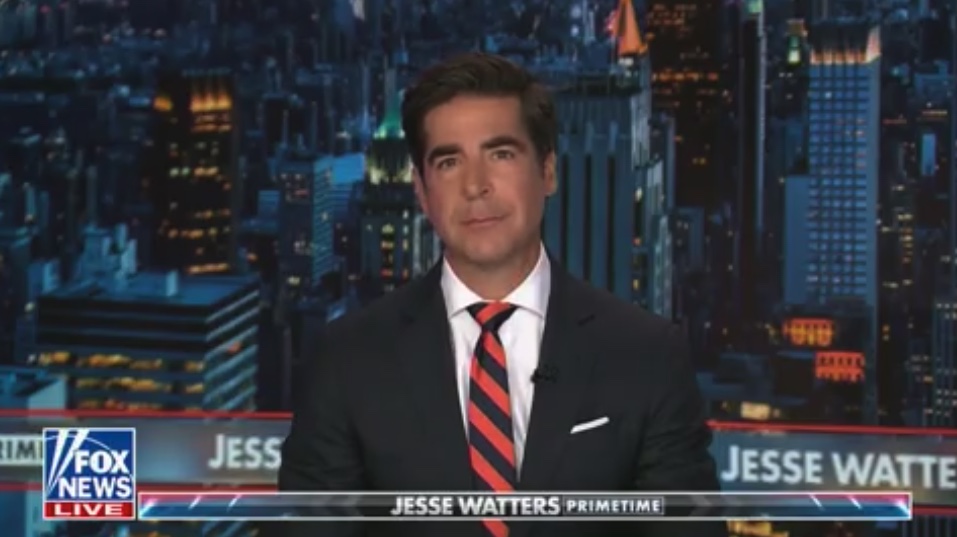Fox News’ Jesse Watters Branded a ‘Blazing A-hole’ by ‘Better Call Saul’ Star Michael McKean
In a recent episode of Fox News’ *Jesse Watters Primetime*, tensions flared when host Jesse Watters made noteworthy comments regarding Karine Jean-Pierre, the former White House press secretary. Jean-Pierre is preparing to release a book titled *Independent: A Look Inside a Broken White House, Outside the Party Lines*, and Watters took the opportunity to criticize her as a product of “Diversity, Equity, and Inclusion” hiring practices. He suggested that her upcoming book contradicted her former role in the administration, capturing the ire of many viewers and celebrities alike.
Watters’ Controversial Remarks Spark Outrage
Watters’ critique aimed at Jean-Pierre’s appointment sparked significant backlash on social media, where users quickly condemned his remarks. Many perceived his commentary as not just a political stance but as a personal attack on her qualifications and professional achievements. This led to widespread debate over the implications of such rhetoric in contemporary political dialogue and its effect on representation in media.
As he shaded Jean-Pierre, Watters implied that her identity and background played a significant role in her hiring, a point that many found offensive. Critics asserted that his comments perpetuate stereotypes and undermine the hard work of individuals who have been involved in the administration. As the debate intensified, Watters found himself at the center of a controversy that highlighted ongoing issues related to diversity in politics and media.
Michael McKean’s Response: A Call for Civility
Among those who reacted to Watters’ commentary was actor Michael McKean, recognized for his role as Chuck McGill in *Better Call Saul*. McKean did not hold back in his response, expressing his disapproval of Watters’ comments through social media. He labeled Watters a “simpleton” and a “blazing a**hole,” articulating the frustrations that many felt regarding Watters’ remarks. McKean’s quick and fierce defense of Jean-Pierre served as a rallying call for those who believe that media figures should be more thoughtful and respectful in their discourse.
The actor’s long-standing career, which includes roles in iconic productions such as *This Is Spinal Tap* and *Best in Show*, lends weight to his criticism. His experience in Hollywood exemplifies the complexities of representation and the responsibilities that come with having a platform. McKean’s stance brought attention not just to the personal nature of the critique, but also to the broader implications of how political figures and media personalities engage with one another and with the public.
The Aftermath and Social Media Reactions
The incident quickly gained momentum online, with numerous fans and followers expressing their support for McKean and denouncing Watters’ remarks. The hashtags and discussions that erupted emphasized the growing concerns regarding how public discourse can often devolve into name-calling and insults rather than constructive dialogue. Many advocates for diversity and inclusion highlighted the importance of approaching discussions with respect and understanding, especially in politically charged environments.
Furthermore, this social media uproar reflects deeper societal divisions where political affiliation often dictates personal views, leading to heightened emotions and sometimes inflammatory responses. McKean’s replies resonated with those who prioritize reasoned conversation over provocation, encouraging a rekindling of civility in political discussions.
As this situation continues to unfold, it serves as a reminder of the potent intersection between politics and pop culture, with figures like Jesse Watters and Michael McKean standing on opposing sides. The dialogue initiated by Watters and responded to by McKean reveals the entrenched battles surrounding representation, identity, and political discourse in today’s media landscape.
Ultimately, incidents like these underscore the importance of engaging in discussions that respect individual backgrounds and professional merits rather than reducing them to simplistic narratives. This ongoing conversation in society speaks to the necessity of thoughtful communication in a world filled with noise and division.
As we look toward the future, it will be intriguing to observe how figures in media and entertainment navigate these waters, and whether the public calls for more comprehensive dialogues will pave the way for change in how political commentary is approached.





